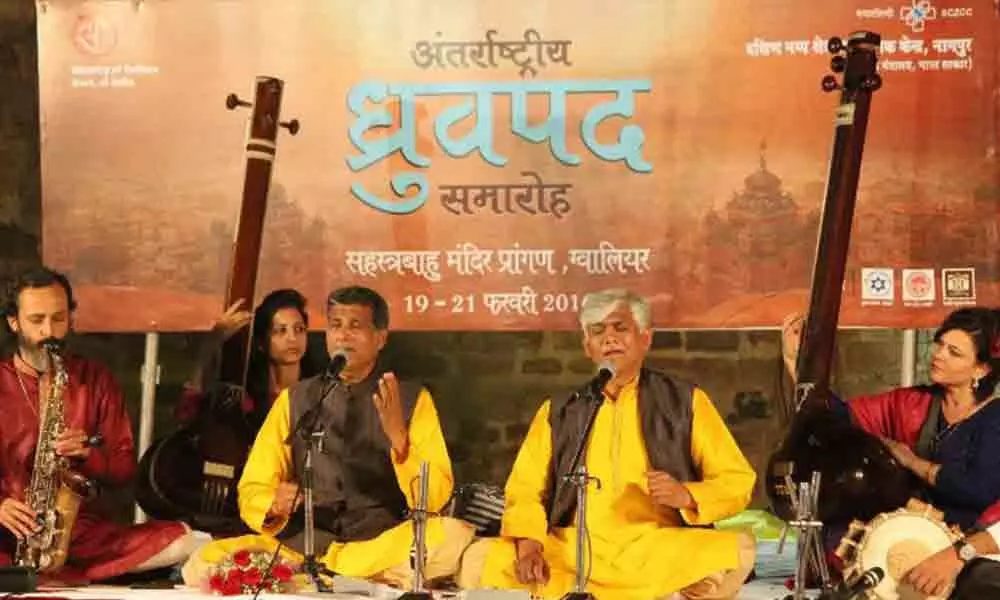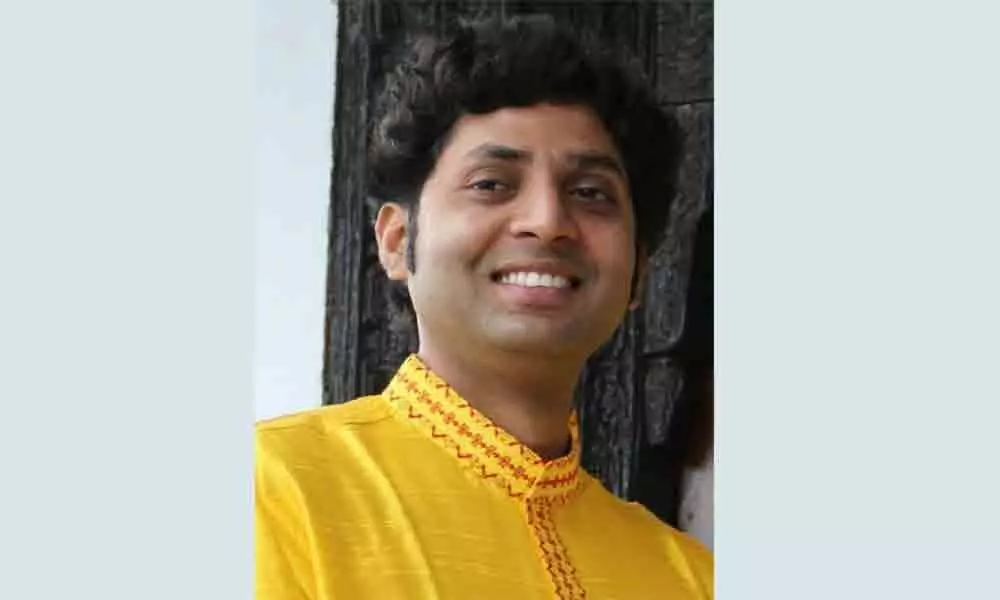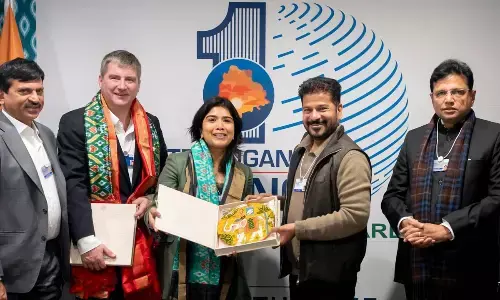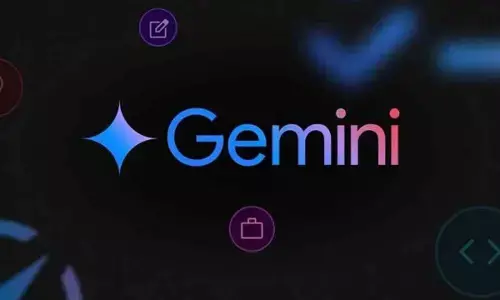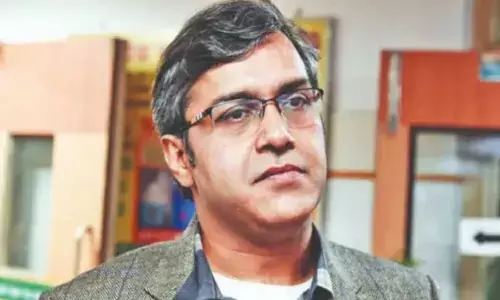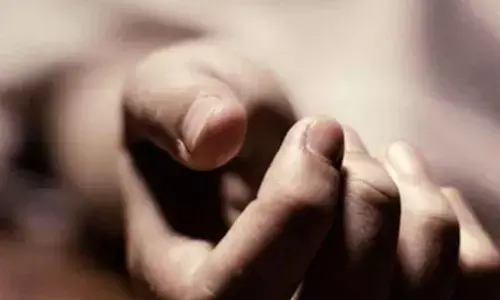Dhrupad is like grammar
Manish Kumar part of the ‘Bihar Brothers’ informs that intense desire to learn Dhrupad led him to seek and find the legendary maestros…
Listening to all-night classical music performances from the 'Sankat Mochan Sangeet Samaroh' on the Tulsi Ghat, which adjoined his hostel in Banaras as a student of the Banaras Hindu University pursuing music, Manish Kumar was greatly attracted to the Dhrupad form particularly the 'Dagar Vani'. His intense desire to learn this form led him to seek and find the legendary Dhrupad maestros, Ramakant and Umakant Gundecha and became their student at the famed Dhrupad Gurukul Sansthan in Bhopal in 2006. Recalling his struggle to take up music hailing from a family that had no musicians for 10 generations and the beautiful 13-year musical journey with his Gurus, Manish Kumar part of the 'Bihar Brothers' duo along with fellow student Sanjeev Jha is the ever grateful student in awe of his humble, talented and extremely down to earth gurus.
"They are wonderful teachers, who have never missed taking a single class in all the years that I have been with them. Even on occasions where they have just finished a performance, they always take their scheduled class. Never holding back their knowledge, they bring the best out of their students and their dedication to music is absolutely amazing," says Manish. The musician with a pleasant, calm and serene demeanour spreading the knowledge of Dhrupad through teaching 20-odd students in Hyderabad since 2013, is the driving force behind the 'Dhrupad Gurukul' envisaged by his gurus in Hyderabad the foundation for which was laid this year.
Spending eight days every month in Hyderabad, Manish takes 'one on one' classes for disciples whose age group ranges from eight to 78 years, managing a group class as well during each visit. In fact, he has about five students in the septuagenarian range, who were inspired by 75-year-old Vijaya Raman in whose home he has been staying and taking classes for many years now. Although some students have gone abroad or moved out of the city, they continue to keep in touch pursuing Dhrupad through Skype classes and regular 'riyaaz' (practice). Some learn it for the meditative aspect, others want to become performers and Khayal singers want to better their music says Manish of the oldest and purest form of music derived from the 'Sama Ved'. Eminent musicians like Pt Bhimsen Joshi, Hariprasad Chaurasia, Ramnarayan and others were all well versed with Dhrupad singing that enhanced their singing skills he points out. "Dhrupad is like grammar. Once you master it all other forms of singing flow with power and clarity. There is a greater focus on voice culture here with emphasis on each note. The voice steadfast and emerging from the navel, the extended 'akaar' and 'ukaar', how one opens the mouth and holds the tongue while singing are all aspects that are given attention to in this musical form that resonates in the heart of listeners," Manish adds.
One of the most important aspects of learning apart from continuous sadhana is listening to classical music regularly and imbibing it subconsciously. Manish asks his students to listen to music with sincerity never comparing themselves with others but constantly evaluating their own performance to achieve perfection. "A newspaper vendor, who has a small shop on Assi Ghat in Banaras plays classical music all through the day as he goes about his job. The result of this listening is that all the shopkeepers in the vicinity have become perfect in raga identification enjoying music with greater understanding and depth," he says. What is it about Dhrupad that makes it so meditative, worshipful, focused and captivating? "The unhurried dwelling on each note, the long breath and clarity, the deep intonation and tonic inflections that establish a bond with the listener make it like worship and there is nothing greater than 'Nadopasana'. We dwell on the mantra 'Hari Om Ananthanarayana' and each note imbued with 'Ara', 'Nana', 'Ri' 'Re', 'Nana' and other syllables proceeds with precision and melody weaving unbroken magical notes in compositions that haunt us long after the singing is over. That is the magic of Dhrupad," elaborates Manish.
Conducting Dhrupad Festivals annually in different cities is part of the effort by 'Gundecha Brothers' to popularise the Dhrupad form which was at its peak under the Moghuls and Rajputs and practised by great masters of yore like Tansen and Baiju Bawra but lost its eminence in later times. The annual festival at Hyderabad has become important over the years with several promising youngsters performing in the presence of 'Gundecha Brothers' on a stage shared by eminent Dhrupad performers from other places. 'Dhrupad sisters' Jahnavi and Amita, the 'Pakhawaj ensemble' (Dynashwar Deshmukh, Anuja Borude, Deepak Tiwari) 'Ustad Faiyaz Wasifuddin Dagar' and 'Bihar Brothers' are part of this year's festivities along with the much-awaited concert of the 'Gundecha Brothers' themselves. As Manish puts its knowledge of Dhrupad music is not restricted to performance alone. "Music impacts every aspect of life. It brings fulfilment and helps people do whatever they do much better. It helps students learn better, professionals enhance their efficiency and more importantly makes people balanced and better human beings". That's a note that is bang on and very Dhrupad.


